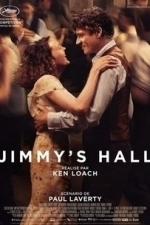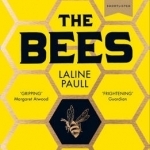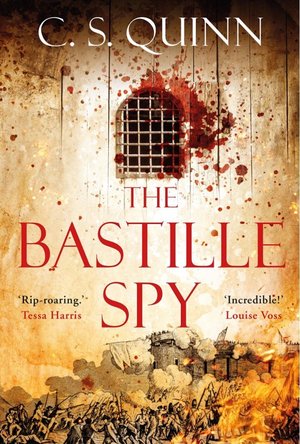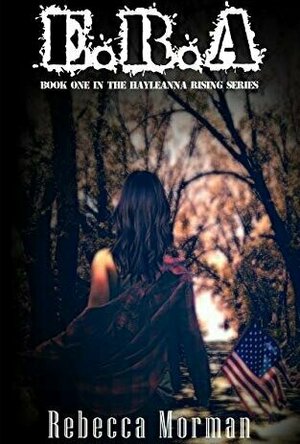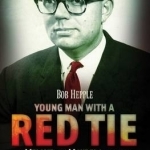
Young Man with a Red Tie: A Memoir of Mandela and the Failed Revolution, 1960-63
Book
It is November 1963. The white police state has captured almost all the underground leaders of the...
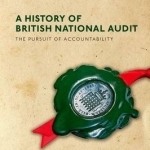
A History of British National Audit: The Pursuit of Accountability
Book
The core theme of the book is the importance of an independent state audit to ensure that the...
Proceedings of the 13th Reinventing Space Conference: 2016
Book
The Proceedings of the 13th Reinventing Space Conference focus is on the commercialization of space...
Gareth von Kallenbach (980 KP) rated Jimmy's Hall (2015) in Movies
Aug 6, 2019
The few that do come along almost certainly rate high on the scale of exceptional movies that one would want to see. I myself can’t remember a ‘bad’ Irish film. Perhaps one of the reasons for that is the fact that this country has a solid history of countless Irish immigrants coming here and helping to build the foundations for America. Well, today’s film for your consideration doesn’t go back THAT far. It doesn’t even take place in America. However, the history of Irish immigrants (specifically one immigrant) does play a role. Only it involves an Irish immigrant how came to America and then several years later returned to Ireland only to be forcibly deported back to America. I know I know. That explanation makes it sound like a comedy and although the film has many lighthearted moments, I can assure you it’s NOT a comedy. In fact, it deals with an influential figure in one of the more politically turbulent periods in Ireland’s history just before the beginning of the Second World War.
‘Jimmy’s Hall’ is a 2014 Irish-British drama directed by English television and film director Kenneth ‘Ken’ Loach. The film focuses on the events leading up to the deportation from Ireland of Jimmy Gralton, who led a precursor to Ireland’s communist party in the county Leitrim.
Starring Barry Ward, Simone Kirby, and Irish character actor Jim Norton, the film opens in 1932. Jimmy (Ward) has just returned to his home to help his mother tend the family farm after spending 10 years in the United States in the midst of the Great Depression coinciding with the establishment of a new government in the aftermath of the Civil War between pro-British and anti-British forces.
Reluctant to anger his old enemies, the church and the landowners who forced him to leave Ireland, but eager to meet the needs of the people of Leitrim, Jimmy (Ward) decides to reopen the ‘Hall’, a center for young people where they can meet to study, talk, dance, play music, learn to read, debate issues of the day. Free to all and open to anyone who wishes to learn while respecting the views and opinions of others, the ‘Hall’ is an immediate success. Not everyone is pleased to see Jimmy resuming his old activities. In particular the church and local priest (Norton) who see Gralton as not only a ‘bad influence’, but also as a follower of Stalin who as history knows sent countless millions (including religious leaders) to their deaths.
Despite the complaints and at times violent reactions on the part of the supporters of the church and the landowners, Gralton tries desperately to make them realize he has absolutely no connection to Stalin and has no desire to bring down the church. Only to better the situation for everyone. Jimmy even invites the local priest to take a leadership role in the Hall’s committee. In the end though, the fears of the church and the state go unchanged. Jimmy is a communist and although he has no connection Stalin the church and the government see them as one in the same. The police take Jimmy into custody at his family’s farm and forcibly deport him back to America even so much as denying him on last chance to see his ailing mother.
In education systems there are books and films which are considered ‘required reading’ or in this case ‘required viewing’. This film should be required viewing. It is not just an excellent film about a historical Irish political figure or as I mentioned earlier a film about a turbulent point in Irish history. It’s an example of the greater ‘world conflict’ between what became the western bloc and the eastern bloc. Both sides in that grater conflict saw each other the same way the two sides in the Irish countryside of the 1930s saw each other. The ones that meant well and only wanted to better the situation for everyone including themselves inspired fear in those who had power and those who had the power inspired fear in those who meant well. This movie showed that not all political figures are evil … nor are all religious figures. It’s the individual or several individuals within those groups that are reluctant to change.
I would highly recommend this film. Regardless of the content it’s an excellent film. If this film is as good as most films made in Ireland, they definitely need to start exporting them on a grander scale. I’d give this film 4 out of 5 stars.
This is your friendly neighborhood photographer ‘The CameraMan’ and on behalf of my fellows at ‘Skewed & Reviewed’ I’d like to say thanks for reading and we’ll see you at the movies
Gareth von Kallenbach (980 KP) rated Kong: Skull Island (2017) in Movies
Jun 19, 2019
The film is set in 1973 when William Randa (John Goodman), informs the government that they have detected a previously unknown island and need to investigate it before the Soviets learn of it and beat them to whatever the island my hold.
William recruits a team which includes a former British officer named James Conrad (Tom Hiddleston), and Photographer Mason Weaver (Brie Larson), to assist his team lead by Houston Brooks (Corey Hawkins), in mapping the island.
William also asks for a military escort and the government enlists Lt. Colonel Preston Packard (Samuel L. Jackson), and his team to accompany the mission. Packard is trying to find his place in the world as he and his helicopter combat team are dealing with the recent end of the Vietnam War. His men are looking forward to going home and resuming their lives, but a dour Packard jumps at the chance for another mission over the uncertainty of the future.
Upon arriving on the mysterious island and starting their survey mission by using seismic charges, the team attract the attention of Kong who is not at all pleased with the intrusion on his island. Kong makes short work of the copters and the team finds themselves scattered about the dangerous island. They soon learn that Kong is not the only danger on the island and must find a way to rejoin each other and make it to their extraction point alive.
Naturally some of the characters have a hidden agenda and there are dangerous and action around every corner. Further complicating matters is the appearance of Marlow (John C. Reilly), a downed WWII pilot who has been stranded on the island for 23 years and warns of dangers far greater than Kong that are ahead of the team.
The film combines a solid cast with state of the art special effects to take a new twist on the standard adventure fare. While many parts of the film remain silly Popcorn entertainment, the quality of the assembled cast allows the film to move beyond being just an assembly of potential victims for a menagerie of CGI creatures to dispatch.
While the story is more in lines with the linear and thin plots of adventure films of old, the sum of the parts does add up to an enjoyable film experience for those who like the giant creature films. You will want to make sure to stay after the credits as there is a very good scene that shows a setup for a future film that had those in attendance at our press screening cheering.
The film may be a bit intense for younger viewers but if you are looking for a touch of nostalgia and action, you may find the film just what you need.
http://sknr.net/2017/03/08/kong-skull-island/

HLM 50+ Towards a Social Architecture
Edward Denison and Anthony John Monk
Book
Since its sudden and dramatic formation upon winning the competition to design Paisley Civic Centre...
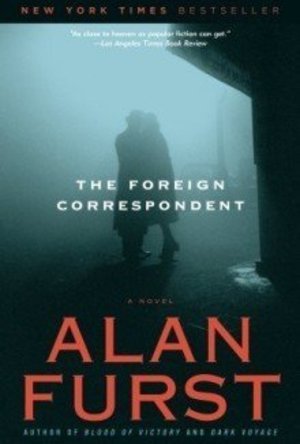
The Foreign Correspondent
Book
From Alan Furst, whom The New York Times calls “America’s preeminent spy novelist,” comes an...
Established British playwright Laline Paull’s debut novel, The Bees, represents just that. I may just be reading too much into the buzz, but the Oxford alumni who has had two plays performed at the Royal National Theatre must have some of the country in her subconscious as she writes.
The novel follows the life of worker honeybee Flora 717, born of the lowest class of bee society. In a world where mutation and difference is destroyed on sight, the larger-than-average Flora is saved from destruction by opportunities born from austerity in the hive, where ‘the season is deformed by rain, and the flowers shun’ the bees, so they need every available worker.
The life of the honeybee turns out to be symmetrical of Plato’s Republic and his utopia, where children are told what role they will have in life based on their ‘blood’. Plato divided the bronze craftsman, silver guardians and golden philosophers, and Paull divides bees in their ‘kin’ groups, named after flowers, and are priestesses to police, foragers who can fly outside the hive to the sanitation Flora, the lowest, and are given ‘no flower’. ‘A Flora may not make Wax for she is unclean, nor Propolis for she is clumsy, nor ever may she forage for she has no taste, but only may she serve her hive by cleaning,’ but the talented Flora 717 wants more.
Throughout the novel, Paull shows the same attachment to characters as George R R Martin, author of the Game of Thrones novels; the frequent loss deepens the heartbreak Flora must overcome as she fights to defy her set fate and claim the most illegal of desires. No reader will escape the anguish that concludes each new adventure.
The hive is akin to a cult, with leaders keeping their inferiors in check, with fear, intoxication and just a little hypnosis. The cult is complete with its own religion, mantra and even a parody of the Lord’s Prayer, ‘Hallowed be thy womb’, arguably my favourite part. This made the story really exciting, being on the ‘outside looking in’ as the reader, I wanted to encourage Flora to defy, but felt the fear of going against her sisters (this isn’t a cult bond word, they are all blood sisters, for only ‘the queen may breed’).
Paull’s scriptwriting has nurtured the ability to make the reader visualise her words exactly how she writes them, and that is clear within The Bees. I can see the wax panels that Flora 717 scuttles across as she travels around her hive, I can imagine the wax cribs in the nursery and know the deadly yellow and fine lines of the enemy wasp. In the ‘glass cage’ when Flora discovers the Venus Fly Trap, Paull never mentions the plant by name, but speaks only of their ‘red mouths’ with ‘white filaments’ on each ‘inner lip’, they ‘bore no pollen, the only nectar a viscous slick at the join of the petals’. But for all her beautiful imagery seeping off the pages, The Bees was not a book I have felt submerged in.
Full review on <a href="http://www.natari-himi.com">natari-himi.com</a>;
ClareR (6091 KP) rated The Bastille Spy in Books
Aug 1, 2019 (Updated Aug 1, 2019)
I’ve no idea how likely this would have been, and largely speaking, I don’t actually care. This book is non-stop action, as Attica is asked to investigate the murder of a rebel in the Bastille. She sees how dangerous Paris is becoming, and how the French royal family really don’t care about their poorer subjects. Attica teams up with a Privateer/ Pirate to complete her mission - and I found myself wondering (and hoping - see point 2):
1. When the next book will be coming out*, and
2. Will he be in it!
*for the record, I know that this book has only just released, and I’m firmly of the opinion that authors should take as long as they want/ need to take over writing their books. Can’t help but want to see more of these fabulous characters though!
Attica’s backstory is fascinating: the bastard daughter of a British nobleman who has escaped from slavery, educated and brought up as a Lady, she is expected to marry to her family’s advantage (or to that of the Crown). Attica doesn’t really like playing by the rules though, and trains to be a spy - which sounds brutal, but prepares her for some pretty risky missions.
The French people generally, whether Royalists or Republicans, don’t come off terribly well. The Republicans all seem to be pretty bloodthirsty and immoral, the Royalists are ‘just’ immoral. So, happy days (I should also say here that I know lots of lovely French people who are neither immoral or bloodthirsty. Just to make that clear 😉)!
Have I said how much I liked this book? Because I really did. If you want a fun, exciting, historical fiction novel, then this will be right up your street. I’m definitely putting this in my ‘Look out for the next in the series’ watchlist (yes, I really do have one of those).
Many thanks to Jellybooks who provided me with a copy of this book to read and review all the way back in April 2019! I’ve had to try very hard to keep this under my hat since then!
Leanne Crabtree (480 KP) rated E.R.A (HayleAnna Rising, #1) in Books
Jan 11, 2021
This sounded rather good so I downloaded it but the more I read, the more I disliked it. That sounds bad but when I generally enjoy almost 95% of books I read, I think it's fair. It might be because it was self published and needed a really, really good proof read and edit as the amount of misspellings and simple errors drove me mad.
So this starts with HayleAnna waking up for her first day of training to join E.R.A - America's army of the future - so she can follow in her dads footsteps. She meets the trainers, a group of five, and makes friends with her roomie, AZ, before embarking on her schedule of training throughout the days and weeks so she can help stop the crazy madman who is trying to rule America after the government collapsed a handful of decades ago.
I had a couple of other issues with this book, just simple things I didn't understand.
One: Her name is HayleAnna but everyone calls her Anna. Surely Hayle with it coming first would be her shortened form?
Two: The romance. I didn't buy it. One minute they're sharing looks and winks and then the next they're pretty much dating and getting married?
Three: The continual use of the word "setting" instead of "sitting". "Setting up in the bed..." Maybe it's because I'm British but that made no sense to me. I set an object down but I sit down.
And four: I felt like I missed something in that 61%. She leaves the training completely to go see her mum amid a possible threat, but when her birthday rolls around everyone from the training is there wishing her well, including the instructors who told her she would be kicked from the program if she left? And then she actually gets a place with E.R.A?
WTF?
That was about the point where I gave up with the story. It wasn't making sense to me anymore. None of it was. I didn't buy the romance between the characters, either, and I wasn't a fan of the explained conversations without having it written in full.
It did have a promising storyline and I'm sure if the authors gave it a full proper once over that it has the potential to be a good book but currently I really wasn't feeling it at all.

